1 Alerts
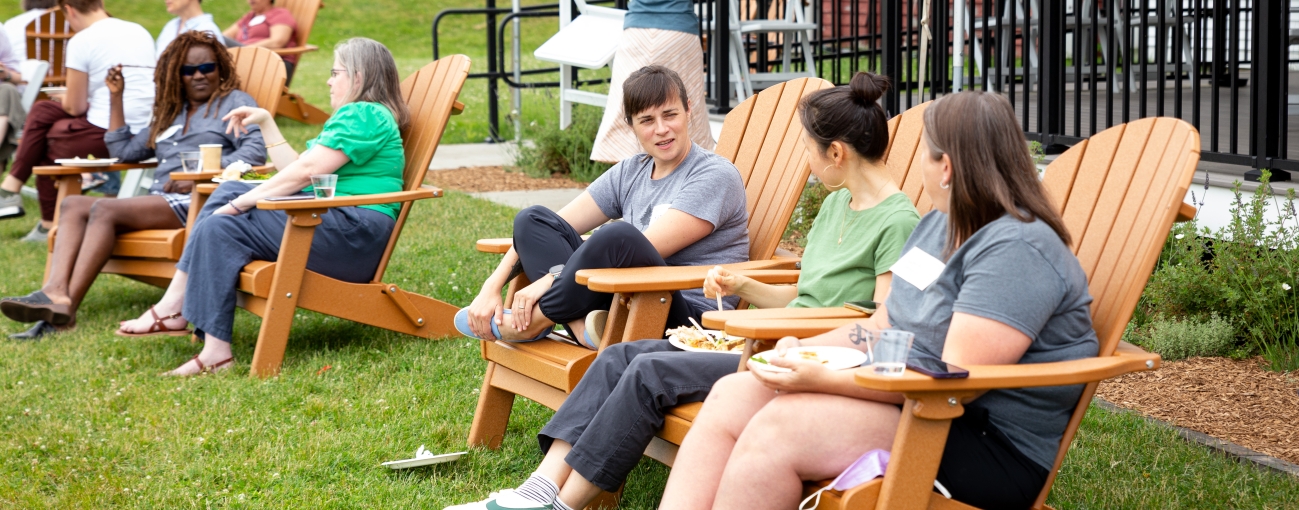
2025-26 Research Associates
The Five College Women's Studies Research Center is excited to be hosting six Research Associates for the 2025-26 academic year.
2025-26 Research Associate Projects & Bios
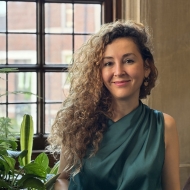
Özgün Basmaz, Ph.D. | Academic Year
Özgün Basmaz (she/her) specializes in the field of transnational cinema, with a particular focus on its intricate intersections with the discourses of gender, race, and modernity. Her research critically examines the impact of Hollywood cinema on the formation of cultural and political narratives within both the United States and Turkey, especially during the Cold War era. Özgün holds a Ph.D. in American Studies from Purdue University. She also earned an M.A. in Intercultural Anglophone Studies from Bayreuth University in Germany, an M.A. in History from the University of Akron, and a B.A. in English Literature from Boğaziçi University in Turkey.
From Missionaries to Silver Screens: Turk as Villain and Venus in Hollywood
"From Missionaries to Silver Screens" investigates the role of American women missionaries in shaping U.S. perceptions of Turkey and Turkish women from the 1910s to the 1960s. Drawing on archival materials related to organizations such as the Near East Relief Fund, the Red Cross, and the YWCA—housed at Smith College and the archives of Amherst, Mount Holyoke, and Hampshire Colleges—Özgün analyzes how their narratives intersected with major geopolitical and social shifts, including two world wars, the collapse of empires, the emergence of nationalist movements, and the rise of women's rights movement. Building on Özgün's primary research on transnational cinema and Cold War U.S.–Turkey relations, this study examines how missionary accounts contributed to the construction of enduring gendered and racialized stereotypes of Turks and Turkish women in American culture, shaping both cinematic representations and foreign policy. By tracing the entangled histories of imperialism, feminism, and media, "From Missionaries to Silver Screens" offers a historical analysis of transnational feminist politics and the negotiation of global solidarities and tensions.
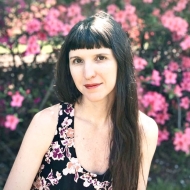
Lucila Carballo | Spring 2026
Lucila Carballo (she/her) is an Argentinian scholar, artist, and doula living in Western Massachusetts. She has an academic background in anthropology, feminist theory, and filmmaking. She is currently a Ph.D. candidate in the Anthropology Department at the University of Massachusetts, Amherst. Her Ph.D. research on Latinx reproductive experiences has been the recipient of the 2024 Wenner-Gren Foundation Dissertation Fieldwork Grant. Carballo works as a full-spectrum doula in association with Green River Doula Network and the Abortion Rights Fund of Western Massachusetts.
The Spectral Landscape of the Womb: Latinx Stories of Pregnancy, Birth, and Abortion in New England
For Black and Brown people, Roe was never enough. The current legal barriers to abortion access in the U.S. are linked with old colonial forms of exploitation and dispossession — genital mutilation, mass rape, unanesthetized womb surgery, and forced sterilization. Latinx populations in particular have been an epicenter of colonial violence; terror runs deep through their embodied memories and occupies a central place in collective narrative forms. The historicization of the Latinx merely as a wounded people, meanwhile, risks dispossessing them again, this time retrospectively, casting them within an ontology of victimization. Indeed, there are erotic aspects to these memories and experiences as well. "The Spectral Landscape of the Womb" looks at stories of pregnancy, birth and abortion within Latinx populations in the U.S. and asks how such fraught and fervent history manifests itself in present-day experiences. How is violence embodied, resisted, and transmuted? How does pleasure co-articulate with current and inherited forms of terror? What can erotic affects and memories reveal about intersecting temporalities, subjectivities, and political actions? Psychological anthropology, feminist theory, and experimental filmmaking are at the roots of this study, which aims to expand and complicate current understandings of reproductive care, subjectivity, and time.
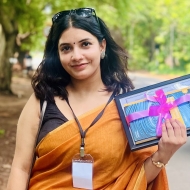
Mani Dixit | Spring 2026
Mani Dixit (she/her) is a Ph.D. Scholar at the Indian Institute of Technology Kanpur, India. She holds a bachelor’s degree in English from the University of Delhi and a masters in English from Jawaharlal Nehru University, where she graduated at the top of her class. Her doctoral research lies at the intersection of memory, family, and queer studies, examining how contemporary queer literature reimagines familial structures. She thrives on grounding academic scholarship in lived realities and is committed to creating space through her research for inclusivity and collaboration. She hopes to bridge the gap between literature and life—envisioning literary research not only in the hands of students and avid readers but also policymakers. She has presented her work at many national and international conferences. Her paper, “A Tool for Reconstruction: The Interplay of Identity, Memory, and Ecology in Octavia E. Butler’s Dawn,” received the Best Paper Award at the Second Annual International Conference of the Indian Network for Memory Studies, hosted by IIT Madras. Her forthcoming book chapter on Mamang Dai’s River Poems will appear in an anthology on Literature and Ecology.
Beyond academia, Mani is a passionate advocate of creative expression. Her poetry has appeared in City and The UNIverse Journal. A seasoned spoken word artist, she has won over fifteen competitions and served as a judge at several literary events. Her creative pursuits also extend to editing—having worked on two published novels—as well as painting and photography, where she continues to explore the intimate and the imaginative in everyday life.
Queer Memory and Family: Intersections of Law, Literature, and Lived Experience
"Queer Memory and Family" explores the deeply intertwined realms of queer memory and family in contemporary queer literature, uncovering how these texts become powerful acts of resistance—challenging normative kinship structures, reshaping collective histories, and redefining what it means to belong. Anchored in a theoretical framework that draws from Lisa Duggan’s homonormativity, Elizabeth Freeman and Jack Halberstam’s explorations of queer time, Kevin Floyd’s queer Marxism, and Ann Cvetkovich’s archives of feelings, this research brings together literature, law, and lived experience. It explores how queer narratives engage with legal regimes and cultural norms, revealing the ways in which systems of power impact the intimate terrain of family and memory. By weaving together literary analysis with oral histories and community archives, the project foregrounds queer familial formations as both sites of vulnerability and radical possibility. Ultimately, it positions queer memory not only as a mode of remembering, but as a transformative force—a reclamation of silenced voices, a rewriting of kinship, and a profoundly political gesture that expands the boundaries of what we imagine family and history to be.
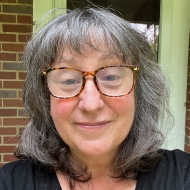
Alice Julier | Fall 2025
Alice Julier (she/they) is a professor and founding director of the Food Studies program at Chatham University, Pittsburgh, PA. She is also the Director of the Center for Regional Agriculture, Food, and Transformation (CRAFT), which, among its many forms of feminist research, training, and food system support, is also a USDA Appalachian Regional Food Business Center partner. Dr. Julier is the past president of the Association for the Study of Food and Society. Her research, stemming from intersectional perspectives, focuses on material experience related to food and labor including the history of domestic meals, regional food systems and commensality, gender and race in food production and sustainable food systems. Publications include “Critiquing Hegemony, Creating Food, Crafting Justice: Cultivating an Activist Feminist Food Studies” in Feminist Food Studies: Exploring Intersectionality; as well as Eating Together: Food, Friendship, and Inequality, and Food and Culture: A Reader (co-edited).
Two Explorations: Critical Food Studies and Intersectionality & Commensality, Community, and Happiness
In the last ten years, the term “critical food studies” has been used with a wide and often undefined terrain and meaning. The common goal positions the study of food, agriculture, and social experience skeptically around historic disciplines that have supported the creation of the field. Similarly, the concept of intersectionality has a wide-ranging application within and outside academic contexts, notably corralled by sociologist Patricia Hill Collins (2019). As a practitioner of both critical food studies and intersectional research as well as having career investment in framing food studies pedagogy, Alice's first project, "Cultural Food Studies and Intersectionality," entails a review of food studies research overtly engaged with intersectionality, exploring its relevance to critical food studies.
The second project, "Commensality, Community, and Happiness," draws on Alice's work of the last three decades to explore the contours of hospitality—specifically, what is known also as “commensality,” the social act of eating together, in both public and private settings, in relation to the construction of relationships in a larger context of racial and gender inequality. Alice is particularly interested in both embodiment and affect, the way material and emotional sustenance is created and sustained. In some contexts, she explores what is meant by “friendship,” and in others, “community.” In this project, part of a larger book of research and essays focused on hospitality, the research examines the commodification of happiness through community development projects (related to improving food systems and public health)—including highly commercialized Blue Zones and planning case studies. Using critical perspectives on race, gender, and ableism, Alice ask the sociological question, “who benefits?”
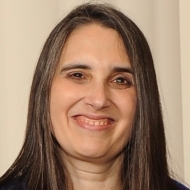
Joya Misra | Academic Year
Joya Misra (she/her) is a Distinguished Professor of Sociology & Public Policy at the University of Massachusetts, Amherst. Joya is an intersectional feminist scholar, whose work explores how social inequalities are constructed and maintained, with an emphasis on workplace and societal policies, cultures, and practices. Her work primarily falls into the subfields of race/gender/class, political sociology, work and labor, immigration, family and care, and welfare states. She is also a methodologist, who uses a wide variety of qualitative, quantitative, and comparative methods. Joya is the co-author of Walking Mannequins: How Race and Gender Inequalities Shape Retail Clothing Work (University of California Press, 2022) and co-editor of Gendered Lives, Sexual Beings (Sage, 2018). She is a previous editor of Gender & Society, and served as president of the American Sociological Association (2023-24).
Gender Equity: Parenthood, Policy, & Culture
"Gender Equity: Parenthood, Policy & Culture" is a book project that aims to identify how policies can better support gender equity, by analyzing how policies currently play out in different contexts. Some countries support working parents through paid care leaves, early childhood education, and subsidies to support child-rearing costs. These policies can be associated with greater gender equity or can reinforce gendered assumptions about women’s roles as caregivers. Yet policies do not operate in a vacuum. Cultural attitudes about maternal employment and gendered divisions of labor within homes influence how policies work. Assumptions about the “ideal parents” underlie policies that often operate differently for families headed by single or partnered mothers, families with different levels of education, queer families, immigrant families, or families from minoritized groups. By analyzing how policies facilitate parents’ ability to work and examining the interplay between market and non-market forces, this work makes new contributions to understanding social and economic inequalities.

Meghan Paradis | Academic Year
Meghan Paradis (she/her) is a Ph.D. Candidate in Modern European History at Indiana University. In 2023, her article on Annette Eick, a prolific adolescent Jewish lesbian writer of the 1920s, was published in Feminist German Studies. Paradis’s research has been supported by funding from the DAAD (German-American Exchange) and Fulbright. In Spring 2024, she taught a world history course at Indiana University entitled "The Invention of the Teenage Girl." In summer 2024, she was a Gilda Slifka Graduate Student Intern at the Hadassah Brandeis Institute in Waltham, MA. Most recently, Meghan was a 2024-25 Research Associate at the Five College Women's Studies Research Center.
The Affective Transformation of German-Jewish Girlhood, 1900-1933
This dissertation traces the affective transformation of Jewish girlhood in the early twentieth century. In this project, Meghan argues that over the course of thirty years, in large part due to feminist pedagogical efforts, shame and self-effacement became delegitimized as virtues for Jewish girls and young women. This affective transformation, she suggests, was realized at the precise moment in the interwar years where gendered, racialized, and antisemitic rhetoric became increasingly omnipresent in German and Austrian societies and aimed specifically to shame and humiliate Jewish girls and women. She suggests that empathy acted as a prophylaxis against shame. This research draws on novels, film, magazine articles, memoir, correspondence, social worker’s notes, and institutional reports and records to illuminate conflicts and convergences between how Jewish girlhood was reimagined and how it was experienced in schools, reformatories and households. It is especially interested in emerging standards of emotional expression and comportment both for Jewish girls and those entrusted with their care.


